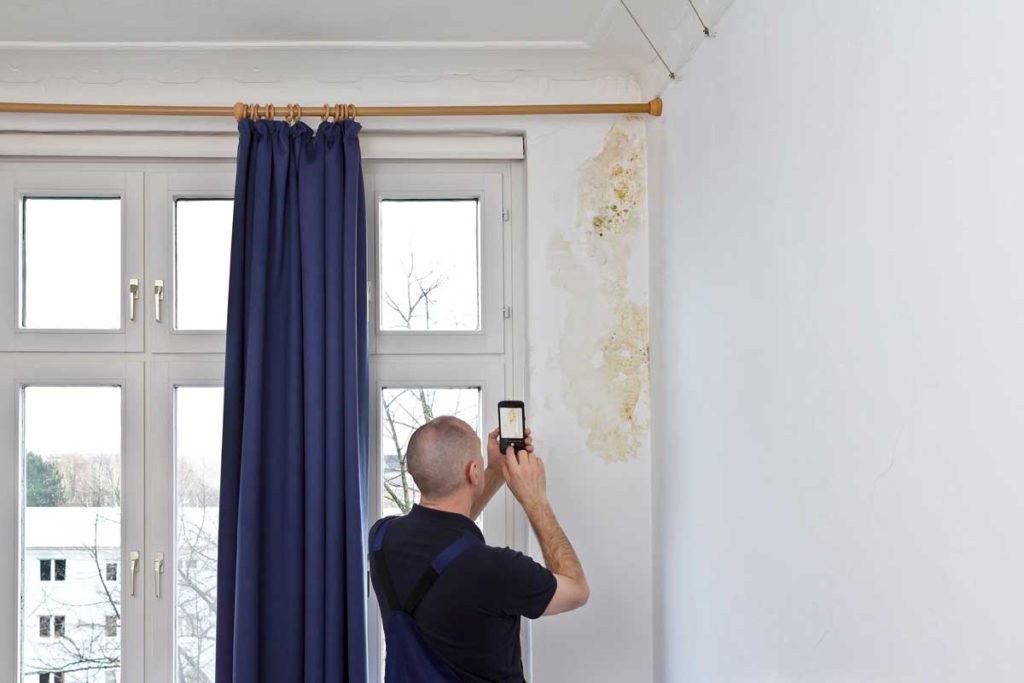Posted September 30, 2023
Are you preparing to buy a home? Are you getting ready to put your home on the market?
If so, you need to know about mold.
Mold may not be a topic anyone wants to think about, but the presence of mold in a home can be a significant issue for buyers and sellers. So, it’s important to know a thing or two about mold, what’s true, what’s not, and what can impact a real estate transaction.
Below are nine things every homeowner or buyer should know about mold:
There are more species of mold than you might think
 Believe it or not, there are an estimated 100,000 species of mold on earth. While not every species is native to every part of the planet, most areas are home to at least several hundred.
Believe it or not, there are an estimated 100,000 species of mold on earth. While not every species is native to every part of the planet, most areas are home to at least several hundred.
Mold spreads easily
Mold creates and releases spores, but like seeds, mold spores are unable to move from place to place on their own. Rather, these spores are blown around by even minor wind currents. They then fall onto other surfaces. Once mold spores fall onto a damp surface they begin to reproduce in as little as 24 hours.
Mold is nearly everywhere and in most homes
Mold grows in almost all environments, indoors and outdoors. Where moisture is found, mold is found. As mold is a naturally occurring part of nature’s recycling process it is hardy and will grow in any environment that has even minor amounts of moisture. As a result, it’s found in almost all homes and buildings of every type.
Your nose usually knows
Mold is in most homes and buildings, and completely, permanently eradicating all of it from a structure is nearly impossible. But the high levels of mold that are problematic are often easy to detect; the scent produced by significant growth of most mold species is detectable by most people’s sense of smell. That musty smell in the basement is almost certainly a sign of mold.
Mold is associated with numerous health problems
Nearly 20 years ago, the Centers for Disease Control’s Institute of Medicine determined exposure to mold – especially indoor exposure – is associated with symptoms such as coughing, wheezing, nasal congestion, irritated and itchy eyes, asthma symptoms and with hypersensitivity pneumonitis in individuals with compromised immune systems.
Mold isn’t usually deadly
The sight of a black mold growing on a wall behind your water heater in the basement may be unnerving, but mold is not usually deadly. Even so, mold can trigger severe asthma attacks and other issues that can lead to serious health problems. So, while mold in and of itself isn’t usually deadly, it’s not to be ignored and should be removed as quickly as possible.
Bleach won’t work in most cases
People tend to think of bleach as a go-to cleaner for the nastiest, worst problems. Used against mold, bleach is effective, but only on non-porous surfaces such as tile flooring, porcelain sinks, or fiberglass shower inserts. Bleach will not eradicate mold growing on wood, drywall, concrete, grout or other porous surfaces.
Eradicating mold should be done by a professional
Eradicating mold isn’t a simple undertaking. First, it’s extremely hard to kill on porous surfaces, which require special cleaning solutions and techniques to clean.
Second, while a typical homeowner can locate mold in some areas of basements, bathrooms, under sinks, garages, etc., that homeowner will likely be in over her or his head when it comes to the numerous hiding places where mold is often found. Mold is commonly found in attics, inside walls, in ductwork, beneath the bases of cabinets and dozens of other difficult to reach places. Professionals are skilled at finding and eradicating mold in these places; most homeowners are not.
Unfortunately, that expertise can be expensive. Eradicating mold from a home can cost thousands of dollars.
Sellers are required to disclose existing and eradicated mold
Mold can be a deal-breaker in the sale or purchase of a home. Buyers understand eradicating mold can be extremely expensive and many buyers find the idea of mold having even been in a home at one time to be too disturbing and will decline to purchase that home.
Sellers in most states are required to disclose the presence of mold, even if it has been remediated completely. In these cases, buyers should work closely with their real estate agent and secure a certification of remediation from the seller. Also, many mold remediation contractors offer limited warranties on the eradication, and these may be transferable to the home’s new owner.
Get the service you need; contact a SmartMortgage loan officer
The loan officers at SmartMortgage have experience in supporting countless buyers seeking conventional and innovative financing for homes. Regardless of your situation, our loan officers will support you from application to closing and are ready to help you. Contact us today and get the professional advice and service you need.
The above information is for educational purposes only. All information, loan programs and interest rates are subject to change without notice. All loans subject to underwriter approval. Terms and conditions apply. Always consult an accountant or tax advisor for full eligibility requirements on tax deduction.


 Believe it or not, there are an estimated 100,000 species of mold on earth. While not every species is native to every part of the planet, most areas are home to at least several hundred.
Believe it or not, there are an estimated 100,000 species of mold on earth. While not every species is native to every part of the planet, most areas are home to at least several hundred.

